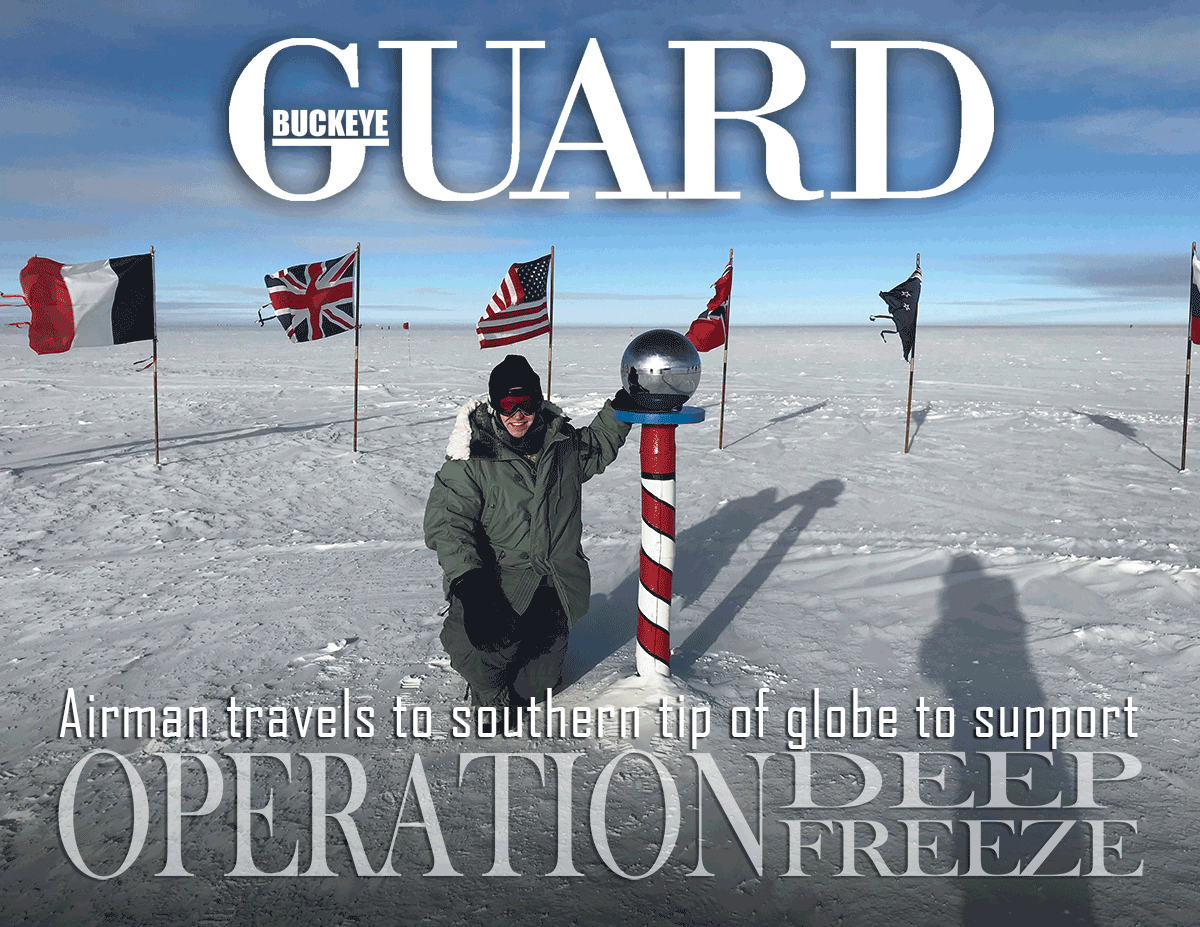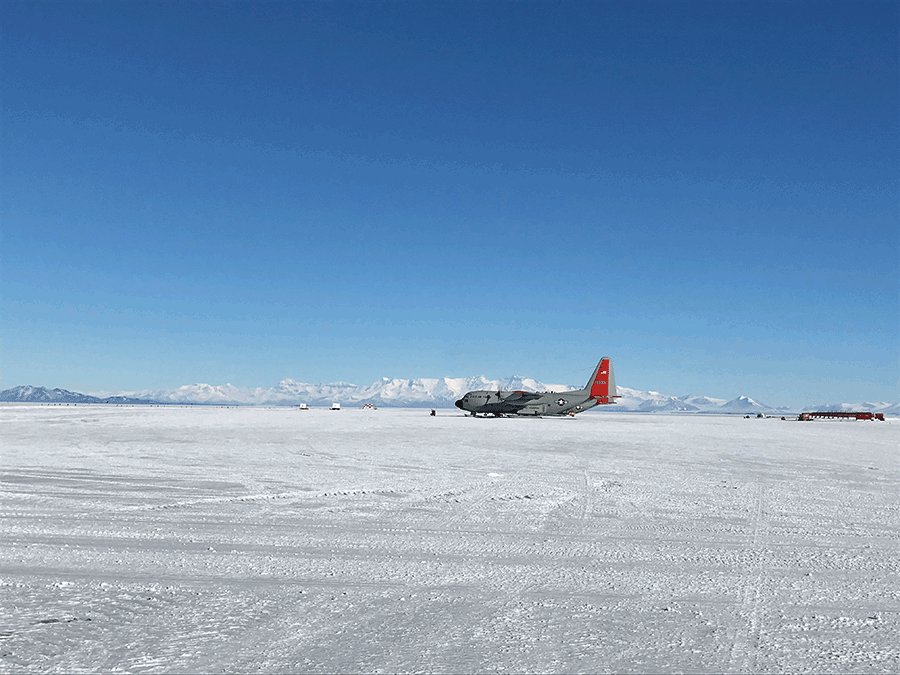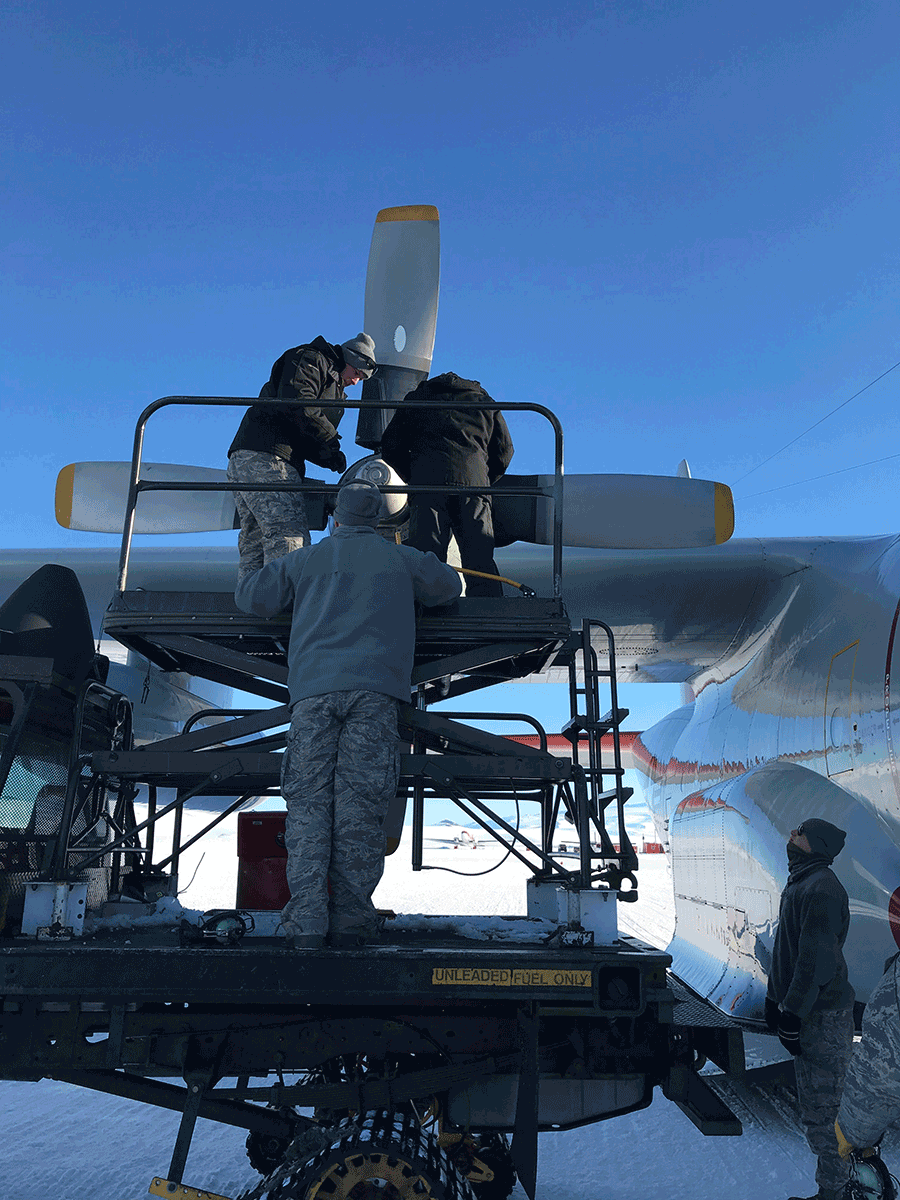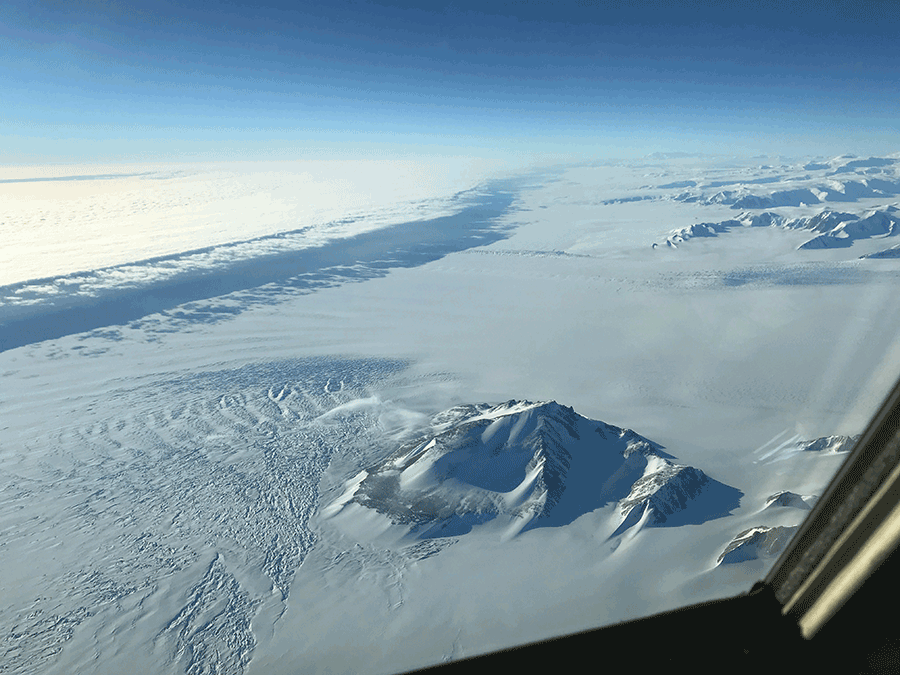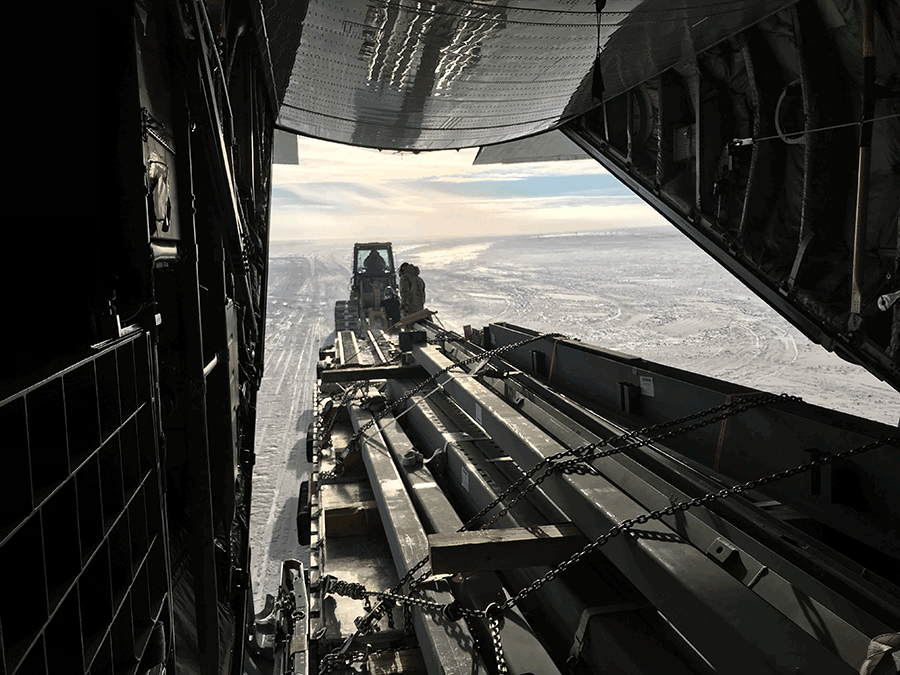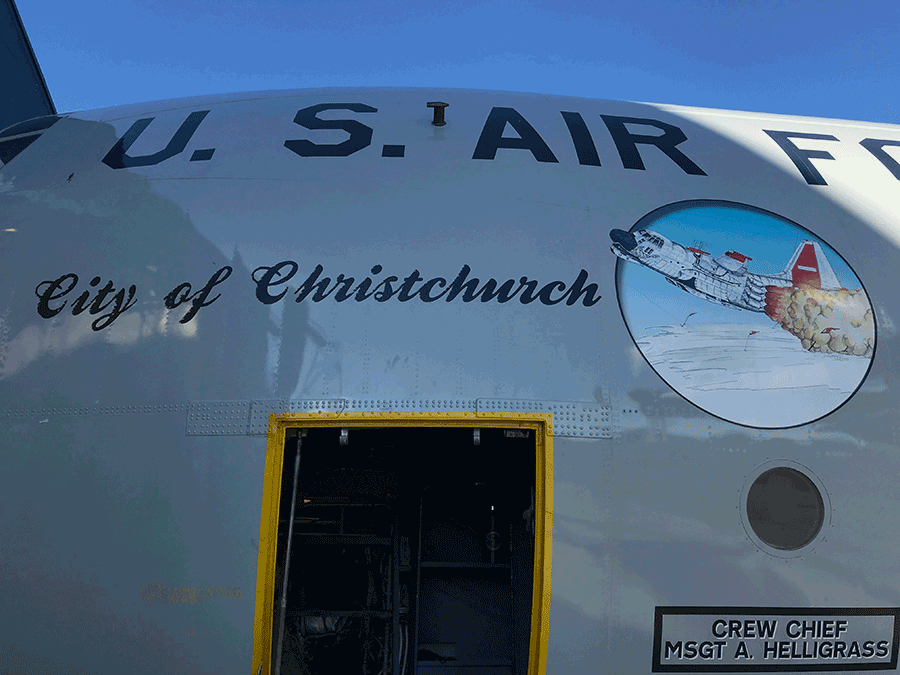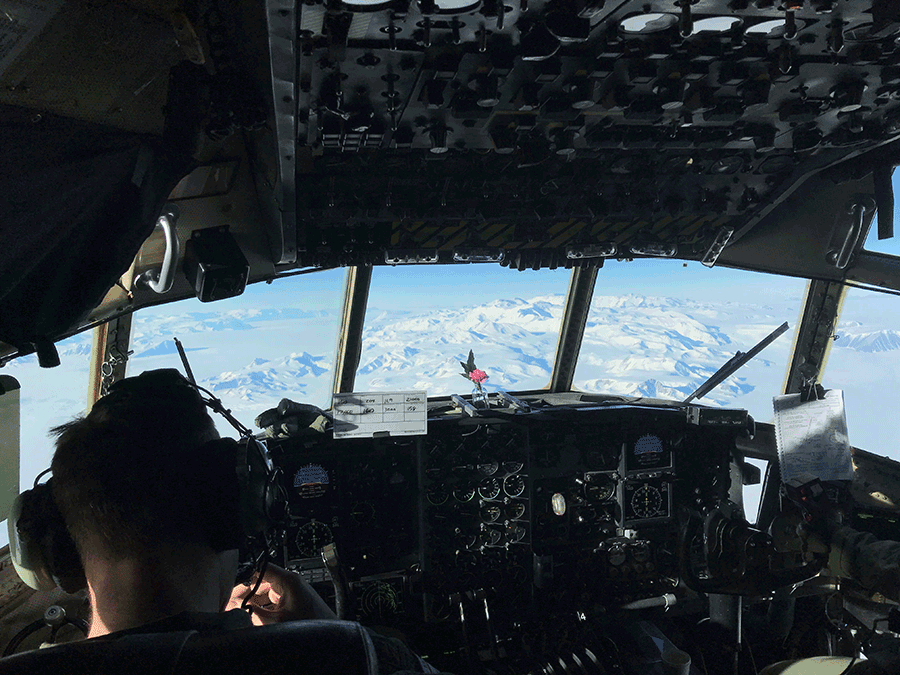Airman travels to southern tip of globe
to support Operation Deep Freeze
Story by Airman Alexis Wade, 179th Airlift Wing Public Affairs
MCMURDO STATION, Antarctica (12/06/2018)
He eagerly looked out the window of the LC-130 “Skibird,” one of seven in the world, that he had been on for over 10 hours, in awe of what surrounded him. Massive mountains, valleys and frozen lakes stretched as far as the eye could see, best described as the most “beautifully desolate” place he had ever witnessed. The Skibird began its descent, landing smoothly onto the frozen lake. Bundled up in their cold weather gear, those on board stepped outside to be greeted by the crisp Antarctic air and immediately prepared to load the bus that would take them up the enormous hills to McMurdo Station, their home for the next month.
This is how Staff Sgt. John S. Worcester, communications navigations and defensive systems technician with the 179th Airlift Wing, based in Mansfield Ohio, described his arrival in Antarctica in support of Operation Deep Freeze (ODF).
ODF is a partnership between the Air Force and the National Science Foundation that provides logistical support to the scientific research being conducted in Antarctica, which includes climate change, global warming, ozone depletion, earth history, astronomy and environmental change.
For Worcester, being a member of the 179th AW has opened up many opportunities for him, one of which being the opportunity to travel to Antarctica earlier this year.
Worcester made the decision to join the Air National Guard at a later age than most, enlisting when he was 30 years old, and hasn’t looked back since. Prior to joining the military, Worcester was a general manager for his family’s business, selling outdoor power equipment. Seeing his parents’ limited family time and other sacrifices due to being committed to their business, Worcester knew he didn’t want to follow in those footsteps. To Worcester and his wife, family is most important, and he knew he needed to make a career change in order to keep his family the No. 1 priority. He and his wife discussed options, and the Ohio Air National Guard presented the flexibility and offered the chance to serve and to travel, an opportunity he said he couldn’t pass up, resulting in him joining the 179th Airlift Wing about seven years ago.
Since joining, Worcester has had numerous opportunities to serve while getting to travel to different areas around the world, two things he said he is passionate about.
“It’s incredible to know something as small as maintaining an aircraft is helping saving someone’s life or bringing aid to people,” Worcester said. “I think that’s amazing and being able to travel in addition to doing those things, it’s just amazing and that’s what really motivates me, I love being able to help people.”
Worcester traveled to Antarctica with the 109th Airlift Wing, based in Schenectady, New York. The unit operates four of the world’s seven LC-130s — ski-equipped variants of the more familiar C-130 Hercules cargo aircraft flown by the U.S. Air Force in the Arctic and Antarctica. The similarities between the two aircraft enabled Worcester to have the knowledge and experience to be able to maintain the LC-130s to ensure they were prepared to transport people, supplies and resources needed to accomplish the mission.
Worcester credits the 179th AW’s strong reputation and good rapport with other wings on previous deployments as a contributing factor in giving him and three other members from the 179th AW the opportunity, being asked by the 109th AW to help fill spots for the mission.
“We really do a good job assisting and just being good maintainers, so our reputations allows us to be a preferred base when they have openings that need filled,” Worcester said.
Worcester’s experience began with one week in Christchurch, New Zealand, which consisted of briefings on what to expect and being issued cold weather gear in order to prepare those traveling to Antarctica with the necessary resources to successfully complete the mission.
After departing New Zealand, he started his journey to McMurdo Station, the U.S. Antarctic research center, which he described as an outpost with a maximum capacity of 300 people, composed of military members, scientists and other professions all working together to further the scientific research being conducted there.
Living in dormitory rooms, Worcester described the environment at McMurdo Station as a very sterile, clean environment, noting that everyone who worked there made a conscious effort to leave everything as unmodified as possible.
For about a month, Worcester’s typical day would begin at 5 a.m., eating breakfast at the dining facility, then catching the shuttle for a 45-minute drive to the airport. From there, he would help maintain and troubleshoot the communication and navigations systems on the aircraft, enabling the aircraft to complete the missions, typically consisting of flights to the South Pole or to other research facilities.
Working in an environment like Antarctica presented challenges Worcester said he was not used to facing. One daily struggle he encountered was the constant sunlight. While being at the end of their summer season, the sun never set, which was a challenge when it came time to sleep, he said. Another major complication they faced with was connection to the internet. Due to the location of Antarctica, the internet is much slower and pricier, with limited internet connectivity.
The ice and rapidly changing climate were also presented challenges. Temperatures at McMurdo Station averaged between 30 degrees to -20 degrees Fahrenheit, sometimes colder depending on the wind chill. They constantly remained prepared with cold weather gear in case the weather took a turn for the worse.
Worcester experienced the most drastic climate change during what ended up being one of the most memorable experiences of his trip. The last week he was there, he found out he had been fortunate enough to have been picked to travel to the South Pole during a construction equipment delivery. Due to the extreme temperatures, this flight was one of the last for the season. Flights to the South Pole are suspended during the winter months, when the temperature reaches approximately -50 degrees Fahrenheit; it’s a temperature that the aircraft engines cannot withstand and operate properly.
Worcester said his flight from McMurdo Station to the South Pole took approximately five hours and was just as fascinating to him as his initial flight into Antarctica.
“I never would’ve thought something like that could be so beautiful,” Worcester said. “Just looking at the massive mountains, valleys, frozen lakes that nobody has ever touched or been to, the adventurer in me just found it amazing.”
With the South Pole being so high above sea level, the air was much thinner than he was conditioned to being in. Just trying to walk would cause one to be out of breath, Worcester said. They made their quarter-mile trek to the Ceremonial South Pole Flag site for photo opportunities, then quickly made their way back to the aircraft to help unload the equipment that was being delivered. The workers stationed there operated with oxygen masks on, in order to avoid getting sick. Worcester was given oxygen after getting back on the aircraft to replenish lost oxygen.
Although their trip only lasted an hour, Worcester said it was, hands down, one of the best experiences of his trip. Worcester said he enjoyed the adventure, but didn’t take the work lightly. Looking for room to grow professionally he observed service members from other units and reflected on the practices of his own shop.
“That perspective is really good and in addition to that, allows you to be open that maybe another base is doing something a little differently that may be better,” Worcester said. “You can take what you learned there and help make yourself and your team better here (in Ohio).”
Looking to the future, Worcester said that if given the chance, he would go back in a heartbeat.
“It was a beautiful experience,” Worcester said. “I believe in the mission they do down there, and on the science aspect of it.”
